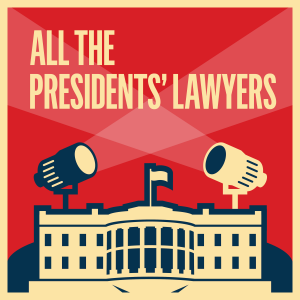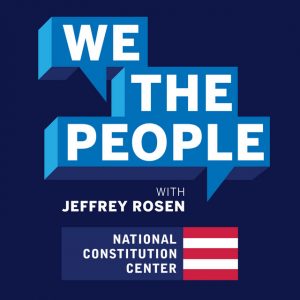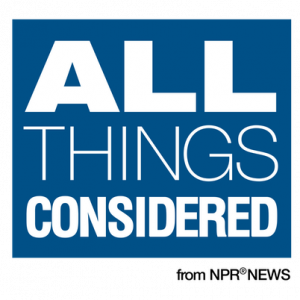Recently White House Counsel directed the National Archives not to withhold documents from the House of Representatives Committee that is investigating the January 6, 2021 attacks on the U.S. Capitol. Part of the reasoning the Counsel’s Office gave was that withholding the documents was «not in the best interests of the United States.» This willingness to handover the documents runs contrary to the desires of former President Donald Trump who had requested that the documents not be turned over, claiming a right to do so under executive privilege. The House committee had sought documents in March and August related to the Trump’s administration’s actions before, during and after the January attacks. Shortly thereafter, former President Trump formally asserted executive privilege, claiming the records are protected from being turned over to Congress. The current Biden administration does not believe the privilege should apply in this specific instance and, barring a court order, will turn over the subpoenaed records. Biden’s decision has motivated Trump to file a lawsuit to block any handover, claiming the committee’s subpoena is invalid and “almost limitless in scope.” The case will now be heard by the U.S. District Court for the District of Columbia, as they will grapple with the topic of this week’s Current Event, executive privilege.
Executive privilege refers to the right the President and executive branch officers have to withhold information from Congress, the courts and the public at large. As many legal and Constitutional scholars are quick to point out, the principle of executive privilege is never mentioned in the Constitution. The privilege stems from precedent and the idea of separation of powers, the doctrine that divides the power of the federal government into the three branches (judicial, executive and legislative). Currently the use of executive privilege is tied to two types of situations. The first circumstance allows information to be withheld because of national security needs. The second circumstance is to protect the privacy of White House deliberations when it is in the public interest to do so, for example to allow advisors to speak their minds freely during internal debate or in discussions with foreign nations without fear of subpoena.
The cornerstone executive privilege case is undoubtedly the 1974 Supreme Court case, United States v. Nixon, also known as the Watergate Scandal. This case established that the president has a legal duty to provide evidence of communications when the information is relevant to a criminal case. Though this may be the most famous Supreme Court case associated with executive privilege, the majority of presidents throughout American history have asserted the privilege while in office. As with so much presidential precedent, we can turn to George Washington for the first example of executive privilege. President Washington asserted the privilege on more than one occasion, including refusing the House of Representatives request to see the executive papers associated with the recently signed Jay Treaty between the U.S. and Great Britain. It is in more recent history that we saw the term “executive privilege” be coined. It was President Eisenhower, during the McCarthy era Red Scare, who originated the term, and he and his advisors went on to assert the privilege over 40 times. Since then most presidents have asserted the privilege, including the last four former presidents: President Clinton, President George W. Bush, President Obama, and President Trump.
This week’s Current Events resources examine the principle of executive privilege and the history of the delicate balance between executive branch transparency and a president’s right to withhold information from the public for the public good. The resources shared provided context for the recent executive privilege controversy as well as information and history for the ongoing debate centered around when it is or is not appropriate for the privilege to be utilized.
Looking for more current events resources? Sign up at our We the Teachers Educator Resource Community page, where you can find all of our Current Events, and learn about our other programs!
Essential Questions, Vocabulary & Extend the Resources:
- In your opinion, under what circumstances should a president be able to invoke executive privilege?
- What is the relationship between executive privilege, the Constitution, and case law?
- Do you agree with the statement, “it belongs to the office, not the individual”, as it relates to executive privilege?
- What are the arguments for and against affording executive privilege to individuals no longer holding the office of the presidency? In your opinion, which argument is the strongest?
- How has the presidency of Richard Nixon impacted the principle of executive privilege?
- Does the concept and practice of executive privilege damage the need for transparency and checks & balances within the federal government?
Click here for a hardcopy of the Essential Questions & Executive Privilege Vocabulary
Click here for a hardcopy of the Extend the Resources handout with suggested lesson activities and extensions
Videos:
Podcasts:
Testing the Boundaries of Executive Privilege, All The President’s Lawyers, NPR, October 20, 2021
Check Your Executive Privilege: Trump and Bannon’s Legal Strategy and the 1/6 Commission, The Libertarian, Hoover Institution, October 20, 2021
When Can the President Claim Executive Privilege, We the People, National Constitution Center
How the Executive Privilege Claim Figures Into Jan. 6 Probe, All Things Considered, NPR, October 16, 2021
Background Resources:
Does executive privilege still protect Trump after his term ends? Fight brews over congressional subpoenas, ABA Journal, October 12, 2021
How does executive privilege work?, NPR, October 21, 2021
Executive Privilege, Legal Information Institute, Cornell Law School
Recent Articles:
How George Washington’s Idea of Executive Privilege Got Mangled, Yahoo News, October 24, 2021
White House rejects latest Trump claim of executive privilege, The Hill, October 23, 2021
Trump’s executive privilege claim in Capitol riot case gets Nov. 4 hearing, Reuters, October 22, 2021
Thing to Know: Executive Privilege, The Skimm, October 15, 2021
Trump, Steve Bannon, and executive privilege over Jan. 6: What does it all mean?, Tampa Bay Times, October 26, 2021
What Is Executive Privilege? Do Steve Bannon and Former Presidents Have It?, Newsweek, October 26, 2021
Recent Editorials:
Does Executive Privilege Extend Beyond a President’s Term?, Reason, October 11, 2021
Executive Privilege and the Jan. 6 Investigation, Lawfare, September 29, 2021
Articles for Elementary Students:
Watergate: The Scandal That Brought Down President Nixon, Newsela
Lesson 16: How Much Power Should Be Given to the Executive and Judicial Branches?, Actively Learn
Lesson Plans:
U.S. v. Nixon, iCivics
Watergate and the limits of presidential power, PBS Newshour Extra
Presidential Power: Executive Privilege, Morningside Center for Teaching Social Responsibility, October 24, 2007
United States v. Nixon (1974), Bill of Rights Institute
Executive Privilege, Center for the Study of the American Constitution
Media & News Literacy Lesson Plans:
Media Literacy Resources – Newseum
News & Media Literacy Lessons – Common Sense
Media Misinformation, Viral Deception, and «Fake News» – University of Wyoming
Evaluating Sources in a ‘Post-Truth’ World: Ideas for Teaching and Learning About Fake News – New York Times Lessons




